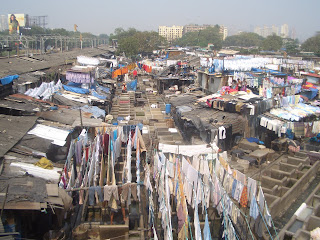There was a very large crowd of very hungry people, several thousand men, women and children. Their need for food and drink was desperate, and there seemed to be little or none available for them.
And then a little lad came shyly out of the crowd and offered his five loaves and two small fish to the leaders of the group to share amongst them all.
And the loaves and fishes were blessed and broken and shared amongst the whole crowd, who were not only satisfied but there were 12 baskets of food left over, gathered up by the helpers, so as not to waste any.
This was the reading in our Anglican churches today, and of course here is the story of the feeding of the five thousand by Jesus. It is told in all four of the gospels in the Holy Bible, Matthew, Mark, Luke and John, although the detail of the young boy appears only in John. Otherwise the stories are remarkably similar in detail, showing the importance that all four of the gospel writers attached to this miracle, and demonstrating the compassion and empathy of Jesus for the feelings of the crowds around him.
Its significance is in the sermon He preaches afterwards, in which he proclaims “I am the bread of heaven,” using the Hebrew word for God, YHWH, meaning “I am”.
And here we have the great love and compassion of God, through Jesus, for mankind, manifesting itself in the feeding of the multitudes, today as then, through us as God’s servants.
Only today the crowds that are hungry number in the hundreds of thousands, even millions, and their hunger has not been for just a day or so but for weeks and months and years, and babies are dying before mothers can travel the miles needed to reach the food sources, and the greatest tragedy is that this could all have been prevented.
Ten million people are said to be affected by the current food crisis in East Africa, and agencies and charities like Oxfam are working around the clock to provide relief where it is needed, but the problem is huge. The Chief Executive of Oxfam, Dame Barbara Stocking, was interviewed by Rachel Sylvester for The Times recently, telling us that compassion and solidarity with people is the essence of Oxfam’s hugely successful activities. And for those who criticise charities for spending too much money on administration and the like, Dame Stocking is clear that in Oxfam 83p in every pound goes on the relief work on poverty, only 10p on support costs, and 7p on the all essential fundraising. So I for one count that as jolly good value for the way my gift is used.
And she reminds us, as if any reminding is needed, that the relief of such poverty and suffering should really challenge us all and our consumerist society. This is a matter of faith for some, but a call for us all to find compassion in our souls towards all of humanity. When we can buy so much so cheaply, at whose expense are these goods made? And would it really hurt to look at our diets, when eating meat is a wasteful use of valuable grain resources? I’ve now been a vegetarian for several years, and it really is no hardship when there are so many fresh fruits and vegetables available (always watching air-miles of course – much of my food I do grow myself on my allotment – but there are many excellent farmers’ markets up and down the land even in our towns and cities and lots of imaginative land projects where more can grow their own vegetables). And a vegetarian diet of fresh healthy ingredients is infinitely cheaper than a diet heavily dependent on meat. Add to that the appalling statistic that we apparently waste 30% of our food, and there is huge potential for savings that we can redirect towards the aid agencies.
So let’s all look at ourselves a little more critically and do all we can individually to help aid efforts and to perhaps alter our consumption patterns – of food and goods – to help others.
Let’s, as the saying goes, live simply, so that others may simply live.
"The penalty good men pay for indifference to public affairs is to be ruled by evil men." attributed to Plato
"Bad men need nothing more to compass their ends, than that good men should look on and do nothing." attributed to Edmund Burke
Sunday, 31 July 2011
Subscribe to:
Post Comments (Atom)
It's Time you knew - by Transition Rachel at YouTube
Sunset

with vapor trails





No comments:
Post a Comment